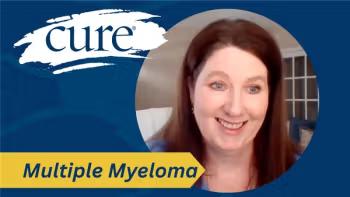
Investigational Drug Combination Could Address Unmet Need in TP53-Positive MDS
The phase 3 trial evaluating eprenetapopt plus Vidaza completed enrollment recently, and could lead to a new standard of care with positive results, according to Dr. Guillermo Garcia-Manero.
A phase 3 trial — designed to evaluate the investigational drug eprenetapopt plus Vidaza (azacytidine) in patients with TP53-mutant myelodysplastic syndrome (MDS) – completed full enrollment.
With topline data expected to be seen by the end of 2020, promising efficacy outcomes could be very important for this patient population that is difficult to treat, according to Dr. Guillermo Garcia-Manero, from the Department of Leukemia in the Division of Cancer Medicine at The University of Texas MD Anderson Cancer Center.
“If this data is positive, then the drug will be approved and this will be the standard of care for patients with this particular mutation,” he said in an interview with CURE®.
Further, Garcia-Manero discussed why TP53-mutant MDS are difficult to treat, highlighting the need for an agent to effectively treat the disease.
Transcription:
Because this is a gene that, through multiple mechanisms — it has very complex biology – it really makes these cells resistant to the type of results traditional chemotherapy provides. It really allows the cell to protect itself from what the chemotherapy does. Basically, you are given chemotherapy and, in a way, this TP53 mutation serves as a shield against it.
There are some families, where they carry this gene. That means that every cell in the body has that mutation, but in general, this mutation occurs in the leukemia cell. Which means that when you give high dose chemotherapy to a patient with the mutation, the body is getting all of the toxicity from the chemotherapy, yet the organ or tissue you want to target — these abnormal leukemia bone marrow cells – are basically not responding to it. So, you’re getting the toxicity of the treatment, yet you’re not getting any therapeutic effect from it.




